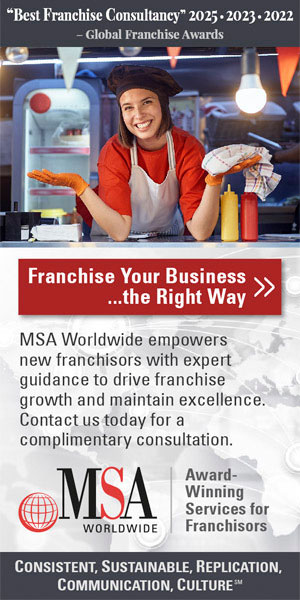Have It All Done?: There is a Difference Between Continuity Planning and Succession Planning
Over the years we have encountered hundreds of successful business owners who have made the statement "I have it all done," as they describe how well they have planned and documented their business succession plan. Unfortunately, in most cases these business owners were referring to the work they have done to implement their wills, trusts, buy/sell agreements, and life insurance, which we would constitute as business continuity planning. You may be asking yourself, what is the difference?
Business continuity planning addresses transferring a business to the next generation, whereas business succession planning addresses transferring a business through> the next generation. Frankly, achieving business continuity is a relatively simple transactional project addressed within your will, trust, and/or buy-sell agreement to transfer your business to your children or partners. On the other hand, business succession planning is a more ambitious process that addresses both transactional and operational issues. A predicate to succession is operational success. Therefore, business succession planning addresses several interdependent operational issues over and above typical estate planning transactions.
Achieving succession success requires the willingness and dedication to stay involved in a process that addresses issues such as exit strategy, family communication, key manager retention, and strategic planning. The fact is, the majority of family business owners indeed "have it all done" only within their limited scope of understanding. According to industry experts, approximately 33 percent of family businesses succeed from first to second generation and approximately 10 percent succeed from second to third generation. Unfortunately, a large portion of business succession failures are due to the misunderstanding that the succession of a business legacy can effectively be addressed completely through wills, trusts, and life insurance.
Frequently, the business is the greatest source of an owner's self esteem. Therefore, reluctance to pursue genuine succession planning and activate an exit strategy is understandably difficult as it can be associated with a loss of self esteem or even severing a relationship with the business owner's "first born" (the business). Unless you want to be carried out the door with your boots on, an exit strategy is essential.
Some business owners simply cannot step back and give their successors an opportunity to validate their ability. Having "no clue" is a cute reaction at a surprise birthday party but a pathetic approach to an issue that is critical to the succession of a business. Unfortunately, at 65 or even older, many self-made business owners have concluded that they are just hitting their prime. After many years of sacrificing to build business, they have finally achieved the personal satisfaction of business success and want to enjoy the fruits of their labor. As a result, they feel they have time to address those matters; while failing to recognize their duty to allow the next generation to assume responsibility and be held accountable for their actions.
Unfortunately, we have no silver bullet that can relieve this behavior. Our best advice is to persistently remind the senior generation of their stewardship responsibility to reinforce the importance of developing successors who are capable of managing the business. It is also worthwhile to mention that in the absence of verifying that successors are capable, the financial security of family employees is at risk.
"Those with nothing better to do" have characteristically been so absorbed by the business that they have failed to develop hobbies and friends. Relationships with employees, key managers, vendors, and business colleagues represent their world. Their families usually lack intimacy and these "work-a-holics" consequently abhor the possibility that the only things to look forward to are household chores and an escape to the golf course. With this business centric mantra, the concept of stepping aside is tantamount to the end of a life's mission.
For these business owners the solution should not be "find a hobby." It is not difficult to convince an owner "with nothing better to do" of the virtues of developing an exit strategy; it will just be a battle to pull it off. The message should be that an exit strategy is a transition not a transaction. Identifying and obtaining agreement to a transition time line is the best approach. Seek conservative time lines, give parents/owners the opportunity for emotional preparation, then patiently and persistently hold them accountable to follow the agreed upon course of action.
Concern about the competency of the next generation can also be a major impediment to an exit strategy. This can be a complex issue because unfortunately some business owners will attempt to justify staying in charge by pointing out the imperfections and mistakes of prospective successors. On the other hand, there are circumstances where successor managers are sending perplexing messages that they are not ready for prime time.
Addressing a business owner's concerns of the successor's competency involves forcing questions regarding the successor's management abilities. Assuming successors have the experience and the training to assume responsibility, wise counsel will urge the owner to confirm those assumptions. The sooner "Mom/Dad" makes this conclusion, the sooner anxiety will recede about the transition of management responsibility. From a negative perspective, keep in mind that there is no such thing as a perfect successor. If the fundamental competencies have not been confirmed, strategies are available to lock in key managers to supplement short suits of family successors, as described in the book The Succession Bridge.
The last category and the most common reason for a business owner's death grip is "personal financial concerns." This insecurity is justified because business profitability is often reinvested to grow the business. Other aspects of financial insecurity are based upon subjective considerations of how much is enough to be secure. Regardless of the derivation, as a business owner approaches 60, the amount and source of income needed to support a retirement lifestyle becomes a hot issue. An entrepreneur's worst nightmare is to fall on hard times and become financially dependent upon their children. The ability to address financial security concerns is dependent upon building wealth outside of the business, which can be developed through implementing a wealth accumulation program.
Hopefully we have provided insight into the importance in developing an exit strategy. No doubt an exit strategy dilemma can be perplexing. However, like all succession issues this one can be mastered. You simply must maintain a "we will get it done" attitude and continue to engage the subject. You may find that before too long, you just may "have it all done."
David Ciambella and Loyd Rawls have been assisting family and privately owned business owners with their succession planning, collectively, for the last 30 years. Loyd H. Rawls, CLU, ChFC, MSFS, is President/CEO of The Rawls Group, and David Ciambella, CFP is a Partner with The Rawls Group, headquartered in Orlando, Florida.
Share this Feature
Recommended Reading:
| ADVERTISE | SPONSORED CONTENT |
FRANCHISE TOPICS
- Multi-Unit Franchising
- Get Started in Franchising
- Franchise Growth
- Franchise Operations
- Open New Units
- Franchise Leadership
- Franchise Marketing
- Technology
- Franchise Law
- Franchise Awards
- Franchise Rankings
- Franchise Trends
- Franchise Development
- Featured Franchise Stories
| ADVERTISE | SPONSORED CONTENT |

$100,000
$100,000





 The multi-unit franchise opportunities listed above are not related to or endorsed by Multi-Unit Franchisee or Franchise Update Media Group. We are not engaged in, supporting, or endorsing any specific franchise, business opportunity, company or individual. No statement in this site is to be construed as a recommendation. We encourage prospective franchise buyers to perform extensive due diligence when considering a franchise opportunity.
The multi-unit franchise opportunities listed above are not related to or endorsed by Multi-Unit Franchisee or Franchise Update Media Group. We are not engaged in, supporting, or endorsing any specific franchise, business opportunity, company or individual. No statement in this site is to be construed as a recommendation. We encourage prospective franchise buyers to perform extensive due diligence when considering a franchise opportunity.